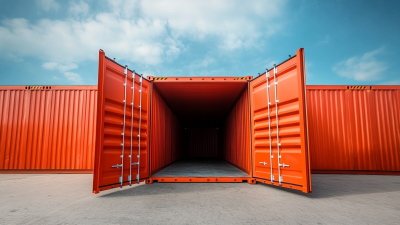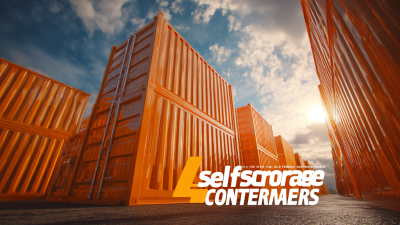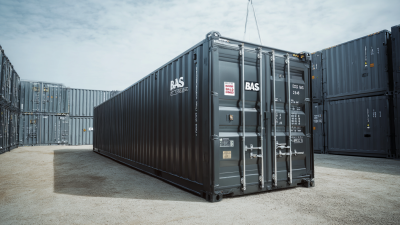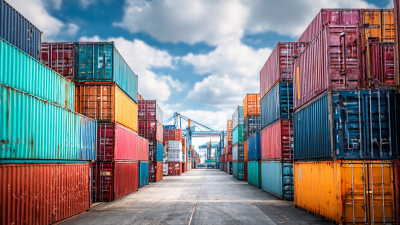In today's fast-paced business environment, selecting the right Portable Container is essential for optimizing logistics and storage solutions. According to a recent report by Grand View Research, the global portable container market is projected to reach $10.54 billion by 2025, reflecting a compound annual growth rate (CAGR) of 9.4% from 2019 to 2025. This growth is driven by the increasing demand for customized storage options across various industries, from construction to retail. Portable Containers offer flexibility and convenience, enabling businesses to adapt to changing needs while minimizing overhead costs. As companies strive to enhance efficiency and streamline operations, understanding the diverse types of portable containers available and their specific applications becomes crucial.
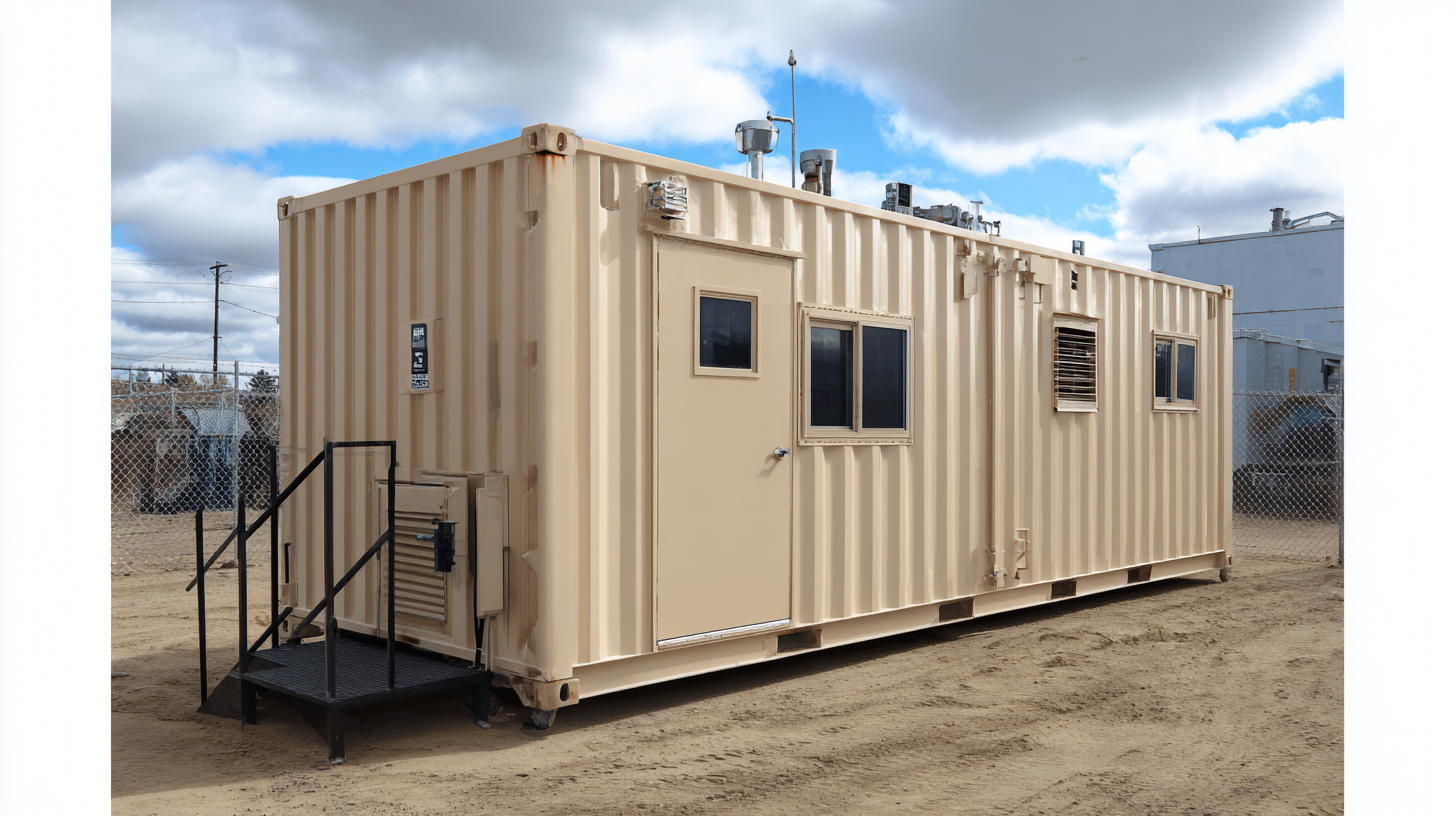
This ultimate guide aims to equip businesses with the knowledge needed to make informed decisions when selecting the perfect Portable Container tailored to their unique requirements.
When selecting the right portable container for your business needs, it's essential to understand the different types available and their specific applications. Portable containers can vary significantly in type, ranging from traditional shipping containers to modern IoT-integrated solutions designed for data storage and transport. Businesses that leverage IoT must consider containers that can facilitate remote access and real-time data management, ensuring that data collected from edge devices is effectively processed and stored.
One emerging trend in portable container usage is the integration of secure cloud storage solutions. With the increasing need for data security and privacy, choosing containers that offer encrypted storage options becomes vital. Businesses should look for containers that can seamlessly integrate with their existing systems, allowing for automatic backups and easy collaboration. Additionally, as the landscape of data management evolves with advancements such as quantum computing, securing the right type of storage becomes critical to cope with the challenges posed by big data and AI in the workplace.
When selecting a portable container for your business needs, several critical factors should be taken into account. First and foremost, the container's size and weight capacity must align with the specific requirements of your operations. According to a recent report by the Portable Storage Association, over 60% of businesses experience inefficiencies due to improper container sizing. Therefore, evaluating your storage and transport needs can prevent future logistical headaches.
Additionally, consider the material and durability of the container. Most portable containers are made from steel or aluminum, but the choice between these materials heavily depends on the environment they will be used in. For instance, if your container will be exposed to moisture or salt, opting for a corrosion-resistant option is essential. A survey conducted by the Container Vendors Coalition revealed that 45% of businesses faced repairs or replacements within a year due to choosing subpar materials.
**Tip**: When assessing containers, always account for growth in your business. Choosing a container that can be easily expanded or customized can save costs in the long run.
**Tip**: If transporting goods over long distances, ensure that the container has proper insulation features to protect your products, especially if dealing with temperature-sensitive items.
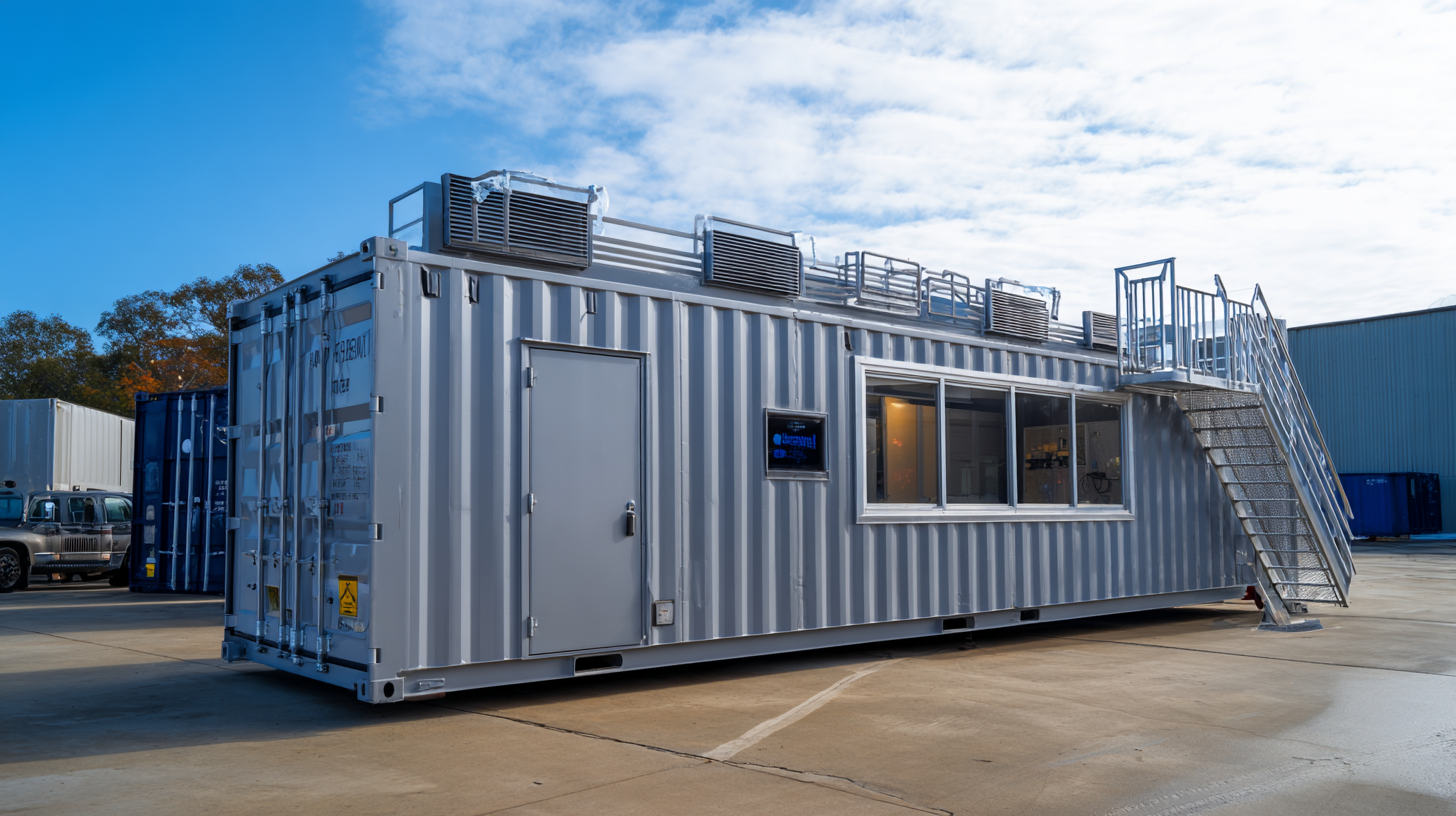
When choosing a portable container for your business needs, durability is a critical factor that can impact your operational efficiency and cost-effectiveness.
Metal containers are widely acknowledged for their exceptional strength and longevity. They are resistant to extreme weather conditions, corrosion, and physical damage, making them ideal for heavy-duty applications.
Moreover, metal containers often provide a higher level of security for valuable goods and can withstand rough handling during transport. However, this durability comes at a higher price point, which is an important consideration for businesses with budget constraints.
On the other hand, plastic portable containers offer a lightweight alternative that is also quite resilient. While they may not match the sheer strength of metal, modern plastics are engineered to resist impacts, UV radiation, and moisture, making them suitable for various indoor and outdoor uses.
Additionally, plastic containers are often stackable, which can save space in storage and transportation. The affordability and versatility of plastic can be very appealing for businesses that prioritize cost-effective solutions and need a container that can adapt to multiple uses without sacrificing quality.
Ultimately, understanding the specific requirements of your operations will help guide the decision-making process between metal and plastic options.
When selecting a portable container for your business needs, size and design are critical factors that can optimize your storage space significantly. According to a recent industry report by the Container Association, businesses that effectively utilize storage containers can increase their operational efficiency by up to 30%. This improvement often stems from choosing the right size; a container that is too large can waste space, while one that is too small could lead to overcrowding and inefficiency.
**Tip:** Evaluate your current storage demands and future growth. Consider metrics from your inventory turnover rates—containers should accommodate seasonal variations without being excessively sized.
Design also plays an essential role in ensuring that space is utilized effectively. Containers with customizable shelving and organizational features can greatly enhance usability. The same Container Association report indicates that 67% of businesses reported improved access to stored items after optimizing the internal layout of their containers.
**Tip:** Look for containers that offer modular design options. This flexibility allows you to rearrange and adapt the layout as your business needs evolve, ensuring that you always have an efficient storage solution.
When selecting a portable container for your business, evaluating the balance between price and functionality is crucial. Recent industry reports indicate that businesses can save up to 30% on logistics costs by choosing the right portable storage solutions. In a competitive market, cost-effectiveness does not solely rely on the initial purchase price but also on the container's long-term usability and maintenance requirements. A well-chosen container can enhance operational efficiency, ultimately driving down costs related to storage and transportation.
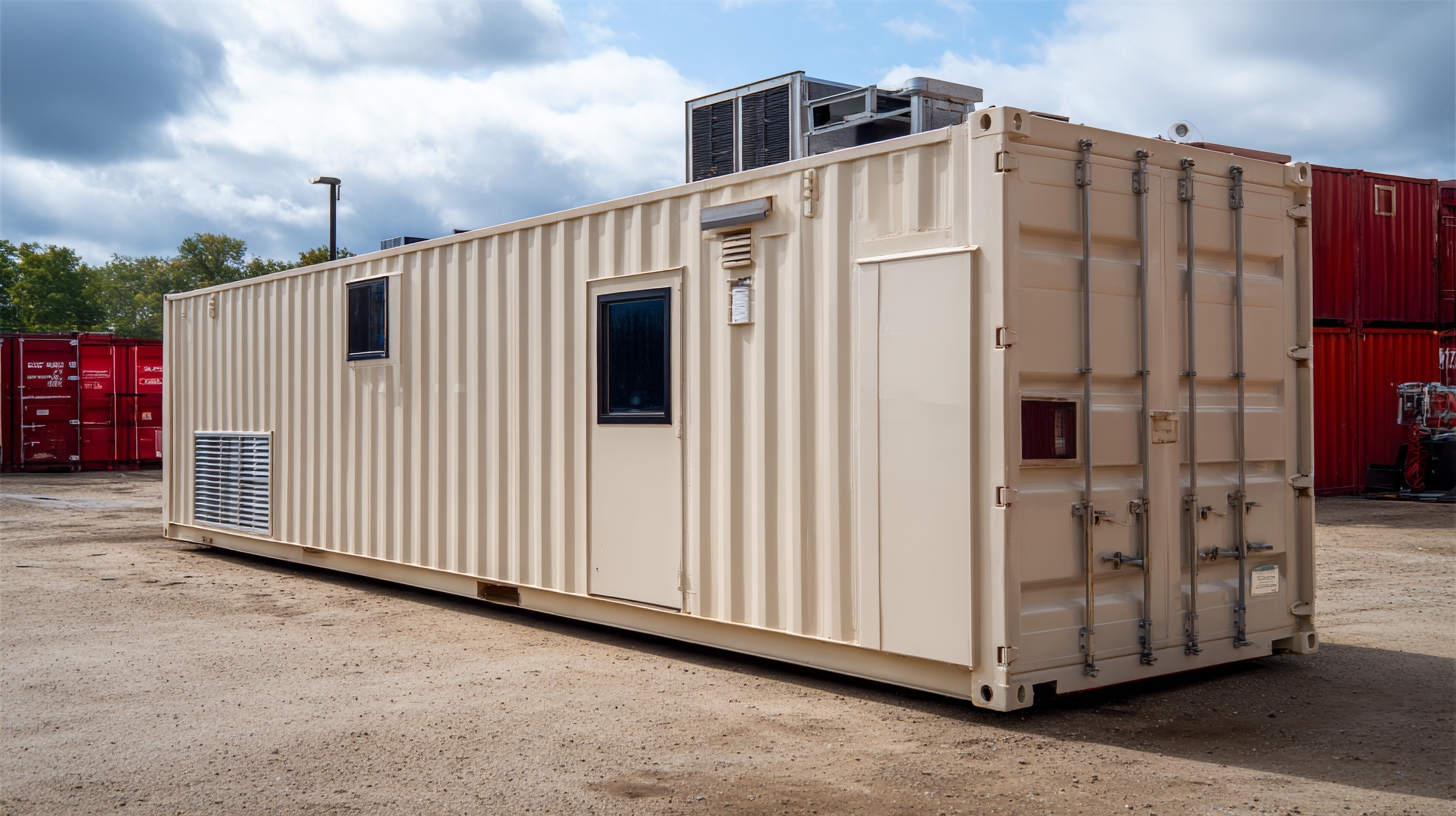
In the healthcare sector, the importance of cost versus functionality has gained heightened relevance, particularly with innovations such as new Alzheimer’s drugs, where pricing decisions can significantly impact healthcare budgets. Similarly, businesses must assess how different container models can accommodate specific needs while keeping expenditures manageable. A report from the Container Management Association suggests that businesses should consider factors such as durability, accessibility, and energy efficiency, which contribute to overall functionality. By making informed choices grounded in both upfront costs and operational capabilities, businesses can ensure they select a portable container that not only meets their needs but provides significant value over time.
